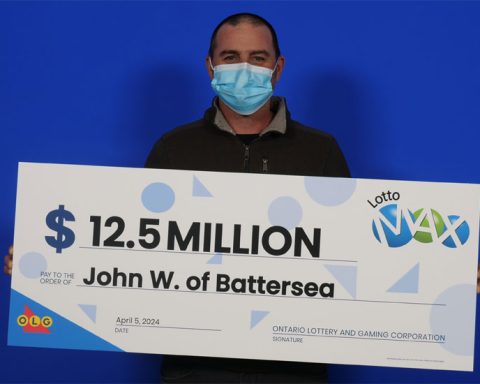
Shortly after midnight on June 6, 1944, Allied troops hit the shores of Normandy in coordination with airborne troops and following preparatory naval and aerial bombardment.
Canadian soldiers, delayed by rough weather, were far later in landing on their own Juno Beach – one of five sectors that were attacked by American, British and Canadian forces that morning – and faced heavy resistance from the German 716th Division. By Days end, Canada was the only nation to capture its planned final D-Day objective and had pushed further inland than any of the other Allied forces.
A new Heritage Minute video pays tribute to the Canadian soldiers who fought on D-Day, telling the story of 47-year-old Major Archie MacNaughton – a First World War veteran who led the North Shore New Brunswick Regiment’s A Company through machine gun fire, mortars, and 88mm air bursts.
A Canadian soldier with the Canadian Scottish Regiment who also landed on Juno Beach is Second World War amputee veteran Allan Bacon. He reflected on the D-Day 75th anniversary in this excerpt provided by the War Amps:
On June 6, 1944, Toronto’s Allan Bacon was one of thousands of Canadians to arrive by boat on the shores of Juno Beach in Normandy, France. As this year marks the 75th anniversary of D-Day, 99-year-old Bacon is reflecting on that pivotal event.
Bacon enlisted with the Royal Regiment of Canada in 1940 and was later transferred to the Canadian Scottish Regiment. When his tour of duty took him to Normandy, his role was in the mortar platoon. “That was because I had difficulty opening one eye at a time, which was required to operate a rifle,” he recalls.

On June 17, 1944, Bacon was based in a barn, anticipating an attack that never came. He went into a nearby shed to disarm the grenades when one exploded, resulting in the loss of his right arm.
When Bacon realized he’d lost his arm, his first thought was, “This will break my mother’s heart.” Bacon recovered at a hospital in England where he learned to use his left arm through exercises like washing windows.
On returning to Canada, he became a member of The War Amps, an Association started by amputee veterans returning from the First World War to help each other adapt to their new reality. Today, Bacon continues to be active with The War Amps Toronto Branch.
Bacon’s daughter, Deborah Sliwinski, says, “In our family, we see my father as a hero. He talks about how losing his arm was the best thing that ever happened to him because it gave him the courage to try new things.”
When asked what he thinks of being called a hero, Bacon says that he didn’t do anything out of the ordinary, adding that at the time, men and women enlisted with the goal of protecting the country and he wanted to do the same.
Through the years, he along with his fellow War Amps members, have made it a goal to remember and commemorate their fallen comrades, and to educate youth about the horrors of war. “In Normandy, many Canadians died or suffered wounds that they had to carry for the rest of their lives,” says Bacon. “On anniversaries like D-Day, it’s important that we never forget.”
Allan Bacon excerpt | photo: The War Amps
Photo: The Royal Winnipeg Rifles heading towards Juno aboard (pd)





